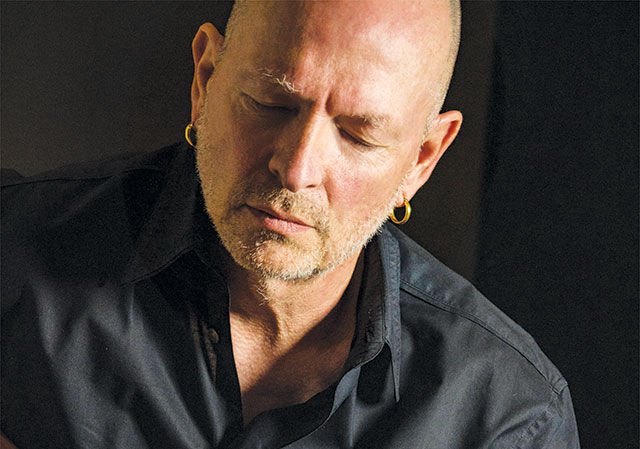Five-time Grammy Award nominee Ottmar Liebert is German-born. His music is rooted in the traditions of Spain. And he lives in the American Southwest. Somehow, he combines these disparate elements into a guitar-based music with one foot in tradition and the other in a modern, highly accessible pop style.
Though he’s a technically accomplished and ambitious musician, Liebert says that accessibility has always been an aim of his work. He cites his very first release, 1990’s Nouveau Flamenco. Noting that flamenco sometimes “seems to meander,” he says that his brand of the traditional style is different. “I like a strong melody. I like structure: Here’s a verse, and here comes the chorus.” He goes so far as to characterize his debut album—which went platinum on the US Latin Music charts 14 times over—as “very pop.”
Liebert manages to have it both ways: he’s a serious and highly regarded musician who just happens to make music that sounds good to the casual listener. His take on flamenco has even found popularity in the genre’s country of origin, Spain.
“My music was played at bullfights,” he says. “My music was played on TV in Spain in the early ’90s. I think maybe it influenced some people there.”
He’s been a prolific artist ever since that debut. Liebert’s latest release, Fete, is his 30th album. Working with his group, Luna Negra, he continues his road-tested approach of bridging the gap between old and new. Alongside classical Spanish guitar textures, Liebert weaves traditional instruments like upright acoustic bass, accordion and acoustic percussion; saxophone, fretless electric bass and even drum programs also fit seamlessly into
Luna Negra’s mix.
Liebert’s wide-screen approach to music developed early. Growing up in West Germany in the ’70s, he had a front row seat to the new and exciting sounds of the era. In his native Köln (Cologne), “there were a lot of great little clubs that had some amazing jazz musicians coming through,” he remembers. And at the theater run by WDR, West German Radio he often witnessed wildly eclectic bills. He recalls one example: “a troupe from India playing traditional music, somebody from Africa and [German heavy metal group] Scorpions!”
The idea of combining such disparate musical elements stuck with the teenage Liebert. Even though he first heard flamenco when he was 15, the idea of expanding upon it didn’t come to him until much later.
“When I moved to Santa Fe in ’86, people here were playing flamenco and mariachi music,” he remembers. “And I was like, ‘Wow, this is a really neat combination!’”
Prior to his move, Liebert played electric guitar, but he found it didn’t inspire him enough. “I was at the point where things felt like they had to change,” he says. So he dove deeply into studying flamenco guitar, with the goal of doing something beyond the traditional. “I took several years of flamenco lessons,” he says, “and then incorporated that stuff into what I heard in my head.”
Along the way, Liebert developed his signature sound, one that draws as much from Cuban rumba and African musicians, like Ali Farka Touré, as it does from non-guitarists like Miles Davis. From his perspective, those seemingly disparate influences have more in common than one might think. “People see jazz or flamenco as these monolithic cultural achievements,” he says. “They don’t know that traditional flamenco is probably 70 percent Arabic music.”
He explains that there are fundamental similarities between supposedly unrelated musical traditions. As an example, Liebert cites the practice of musicians not playing on the first beat of a measure (“The one is bare,” he explains.) “If you listen to tango flamenco, then reggae and then you listen to salsa, you realize that they’re doing exactly the same thing” with that one-drop rhythm, he says.
And Liebert is fulsome in his support of musical cross-fertilization. “If you want to keep something the way you think is traditional, you’re really stopping all development,” he says. Noting that in the current political climate, it’s more important than ever to celebrate the mixing of cultural traditions, he says, “In many cases, we’re not even aware of how we’ve been enriched.”
Ottmar Liebert & Luna Negra
Feb 5, 7:30pm, Sold Out
Carriage House Theatre, Saratoga
montalvoarts.org



